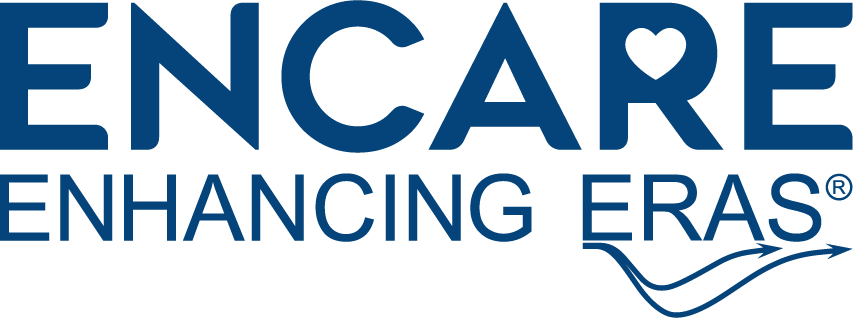


The healthcare sector is under increasing pressure to enhance patient outcomes while controlling costs. Surgery is one of the largest contributors to healthcare costs, with over 300 million procedures performed globally each year. Despite advancements in surgical techniques and perioperative care, up to 40% of surgical procedures result in complications, leading to extended recovery times, readmissions, and increasing healthcare costs. These variations in patient outcomes highlight the need for standardized, evidence-based approaches to perioperative care.

The ERAS® program, developed by the ERAS® Society and implemented by Encare, is designed to improve perioperative care and patient outcomes using evidence-based practices. This resource is designed to guide you through the ERAS® Protocols, the ERAS® Interactive Audit System (EIAS), and the ERAS® Implementation Program (EIP). It will also guide you through how Encare collaborates with the ERAS® Society to offer EIAS and EIP globally to hospitals and health systems, providing essential tools for effective implementation.


ERAS has been shown to reduce surgical complications which leads to fewer readmissions and shorter hospital stays. This will reduce costs, increase healthcare efficiency, improve patient satisfaction, and promote multidisciplinary teamwork. By working together using the most up-to-date evidence, clinical teams can coordinate their care processes more effectively, reducing the risk of clinical variation and improving compliance to the ERAS program by gathering prospective data to …

Traditional statistical methods have provided valuable insights into ERAS® compliance and outcomes, but they lack the sophistication needed to uncover complex/non-linear relationships and causality. Machine learning (ML) is changing this landscape, offering new opportunities to personalize perioperative care and optimize patient outcomes.

Delivering results with ERAS® requires both structured implementation and ongoing compliance monitoring. Without these two components, hospitals risk incomplete adoption, inconsistencies in adherence, and missed opportunities for improvement — all of which lead to poor ROI for the investments made in attempts to implement ERAS without the appropriate and proven tools. Many hospitals attempt to develop their own ERAS compliance tracking solutions, often using existing Electronic Health Records (EHRs), spreadsheets, or business intelligence tools. While this approach may seem viable, it presents significant challenges.

Delivering results with ERAS® requires both structured implementation and ongoing compliance monitoring. Without these two components, hospitals risk incomplete adoption, inconsistencies in adherence, and missed opportunities for improvement — all of which lead to poor ROI for the investments made in attempts to implement ERAS without the appropriate and proven tools. Many hospitals attempt to develop their own ERAS compliance tracking solutions, often using existing Electronic Health Records (EHRs), spreadsheets, or business intelligence tools. While this approach may seem viable, it presents significant challenges.

The ERAS® program, developed by the ERAS® Society and implemented by Encare, is designed to improve perioperative care and patient outcomes using evidence-based practices. This resource is designed to guide you through the ERAS® Protocols, the ERAS® Interactive Audit System (EIAS), and the ERAS® Implementation Program (EIP). It will also guide you through how Encare collaborates with the ERAS® Society to offer EIAS and EIP globally to hospitals and health systems, providing essential tools for effective implementation.

ERAS has been shown to reduce surgical complications which leads to fewer readmissions and shorter hospital stays. This will reduce costs, increase healthcare efficiency, improve patient satisfaction, and promote multidisciplinary teamwork. By working together using the most up-to-date evidence, clinical teams can coordinate their care processes more effectively, reducing the risk of clinical variation and improving compliance to the ERAS program by gathering prospective data to …

Traditional statistical methods have provided valuable insights into ERAS® compliance and outcomes, but they lack the sophistication needed to uncover complex/non-linear relationships and causality. Machine learning (ML) is changing this landscape, offering new opportunities to personalize perioperative care and optimize patient outcomes.

The healthcare sector is under increasing pressure to enhance patient outcomes while controlling costs. Surgery is one of the largest contributors to healthcare costs, with over 300 million procedures performed globally each year. Despite advancements in surgical techniques and perioperative care, up to 40% of surgical procedures result in complications, leading to extended recovery times, readmissions, and increasing healthcare costs. These variations in patient outcomes highlight the need for standardized, evidence-based approaches to perioperative care.
